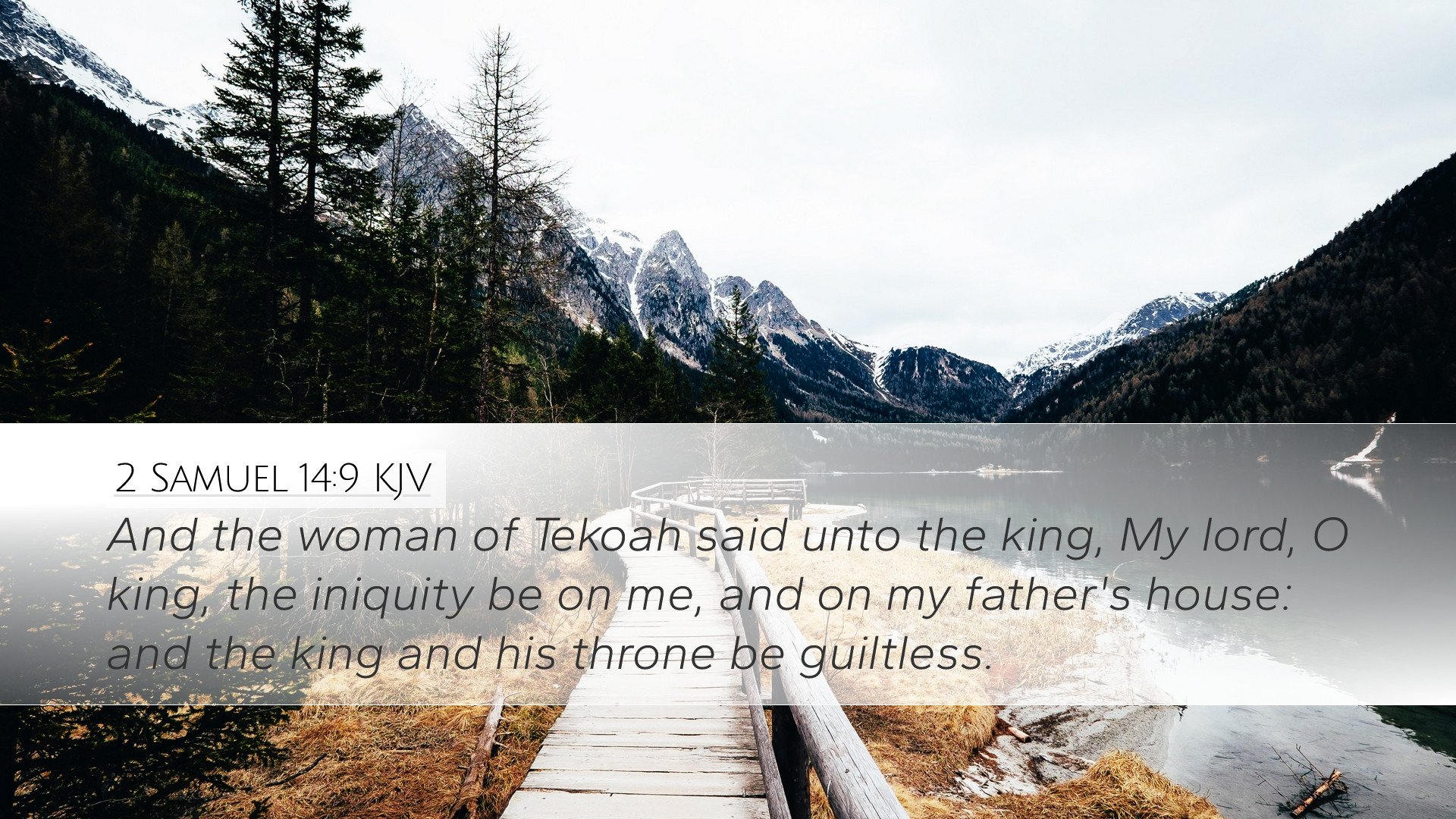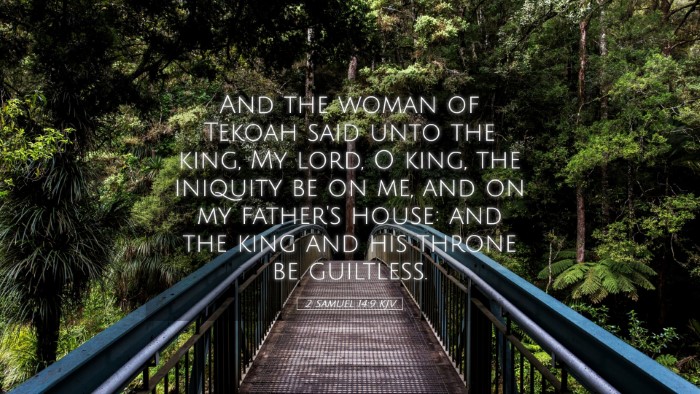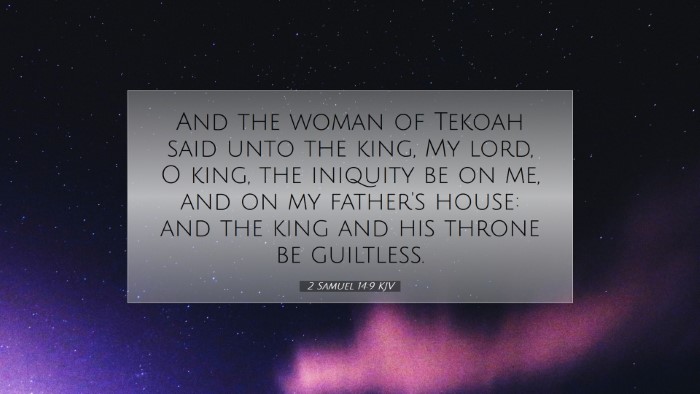Commentary on 2 Samuel 14:9
In 2 Samuel 14:9, we find a pivotal moment in David's reign, where the emotions and tensions within his family are poignantly depicted. The verse reads:
“And the woman of Tekoah said unto the king, My lord, O king, the iniquity be on me, and on my father's house: and the king and his throne be guiltless.”
Contextual Analysis
This verse occurs within the broader narrative where King David is approached by a woman from Tekoah, who is sent to him by Joab. The woman employs a parable to address the king about his estranged son Absalom and to seek reconciliation within David’s family. Understanding the context helps elucidate the psychological and socio-political dynamics at play.
The Role of the Woman of Tekoah
According to Matthew Henry, the woman of Tekoah embodies wisdom and courage as she confronts King David with the weight of her familial plight. She represents the voice of the oppressed and seeks to spark David's emotion regarding his estrangement from Absalom, paralleling her own estrangement within her narrative.
Symbolism of Iniquity
In this verse, the phrase “the iniquity be on me, and on my father’s house” reflects her willingness to bear the shame and guilt of her family's transgressions. Adam Clarke expounds that this act of bearing the burden symbolizes intercession and a plea for grace. This theme resonates with the concept of substitutionary atonement, where one party bears the guilt of another, a foreshadowing of messianic themes found throughout Scripture.
David's Reaction and Responsibility
David's response, when he acknowledges that he and his throne be guiltless, signifies a leadership quality emphasized in Hebrew culture — the responsibility of the ruler to maintain justice and fairness. Albert Barnes articulates that the king’s awareness of the iniquity ensures that he remains steadfast in maintaining the covenantal obligations that bind him to his people.
Implications of Guiltlessness
The declaration of guiltlessness is significant; it emphasizes the necessity for leaders to be blameless and just. This calls into question the moral integrity of leadership and the heaviness of making decisions that impact the wider community. Pastors and theologians can draw parallels to their ministry, reflecting on the burdens of leadership that require keen spiritual discernment.
Theological Reflections
The theological implications of this verse reach broadly into themes of intercession, justice, and familial reconciliation. The example of the woman of Tekoah can inspire modern believers to become advocates for reconciliation in their communities, echoing the call to bear one another’s burdens as stated in Galatians 6:2.
Practical Application for Today
In analyzing this verse, students and scholars are encouraged to consider how the themes of familial duties, the weight of iniquity, and the longing for reconciliation manifest in their own lives. The narrative surrounding this verse underscores the importance of restoring broken relationships, even when those relationships seem insurmountably fractured.
- Emotional Intelligence: Like the woman of Tekoah, leaders today must engage emotionally and wisely with those they lead.
- Advocacy for Justice: The implication of guiltlessness serves as a reminder for Christians to advocate for justice within the church and society at large.
- Intercessory Prayer: As she takes on the iniquities of her family, believers are called to enter into intercessory prayer for those who are lost or in pain.
Conclusion
2 Samuel 14:9 presents a profound vignette encapsulating themes of iniquity, leadership, and the yearning for reconciliation. Through careful analysis of this verse, series of commentaries highlight the roles and responsibilities associated with leadership, the deep-seated desire for familial healing, and the overarching divine narrative of redemption. As those who study and preach from the Word, let us ardently pursue understanding and embody these principles, fostering a culture of reconciliation and justice in our communities.


